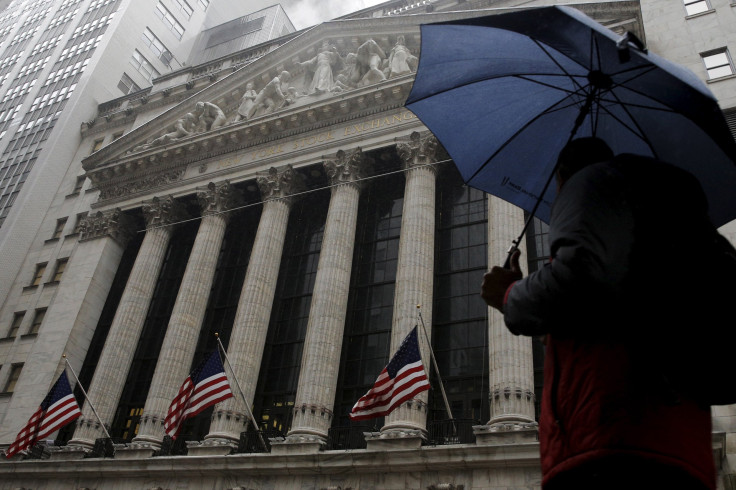Will First-Quarter 2016 Earnings Reporting Season Snap The Corporate Profit Recession?

Employers are busy hiring and consumers are still buying, but at least one corner of the economy is experiencing a recession: corporate profits. Quarterly earnings reported by companies in the Standard and Poor’s 500-stock index have dropped in each quarter since the final months of 2014.
Alcoa’s earnings report after the close of trading Monday kicks off the spring earnings season in earnest. As financial results from the first three months of the year begin trickling in over the coming weeks, Wall Street isn’t looking too optimistic that the trend will reverse in the first quarter of 2016.
Current analyst estimates show the aggregate earnings of the S&P 500 slipping 6.9 percent from the same quarter last year, according to data from Thomson Reuters. Profit growth isn't expected to return until the second half of the year.
That would make the first quarter of 2016 the sixth consecutive period of year-over-year earnings declines, a profit recession that hasn’t occurred since the last months of 2009, in the depths of the last downturn.
The trend isn’t limited to the United States. Low energy prices have crushed earnings at oil and gas companies worldwide, while torpid growth expectations in China and the rest of the emerging world have spread pain to producers of raw materials and commodities. In the last quarter of 2015, U.S. energy sector earnings plummeted 74 percent year over year.
“We think it's too soon to declare that the global earnings recession has finished,” Morgan Stanley equity strategist Jonathan Garner wrote Sunday, citing sinking earnings in all but one market — Switzerland — of the 30 analyzed.
Goldman Sachs is also in the bear camp. Some analysts have predicted a flat earnings season, excluding energy. But that projection “seems more like a best-case scenario than our comparatively pessimistic view that earnings may fall by 9 percent,” analysts led by Goldman’s chief U.S. equity strategist David Kostin wrote Monday.
If earnings stay in recession mode, will the rest of the economy follow? Not necessarily, but if experience is any guide, investors should be on alert. Morgan Stanley, which sees a 30 percent chance of global recession in 2016, noted that five of the past earnings recessions preceded wider economic recessions — defined broadly as two consecutive quarters of contraction in national output.
The exception was the Asian financial crisis of 1998-1999, which dented earnings without throwing broader developed-market economies off course.
Financial headwinds are also playing a role in the current slump. The American banking sector took a wallop from the market turmoil of January and February. Executives at Citigroup and JPMorgan Chase & Co. have warned that earnings could prove a rude surprise to investors this quarter, and Goldman's Kostin estimated that financial sector earnings per share could fall 11 percent.
Howard Silverblatt, senior index analyst for the S&P 500, said that however you add up the numbers, the first quarter is likely to leave earnings in the red. But the decline may not be as steep as in prior reporting seasons.
“It's still bad, but at least it’s a little bit better than the last quarter or two,” Silverblatt said. “The sun will always come out tomorrow.”
© Copyright IBTimes 2024. All rights reserved.






















